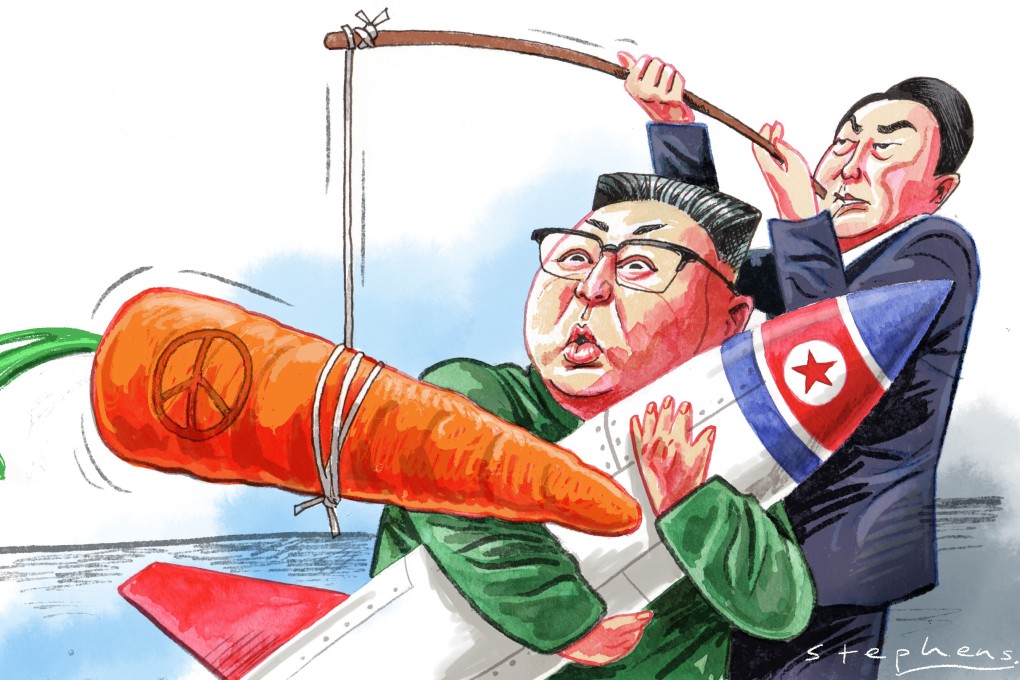Advertisement
Opinion | Why South Korea must lead efforts to denuclearise the peninsula
- The US’ past attempts to denuclearise the peninsula have been too dependent on ‘sticks’ and a resolution is not the matter of life and death it is to South Korea
- Yoon Suk-yeol must offer Kim a deal which has China’s support and that offers the regime a better chance of survival without nuclear weapons
Reading Time:4 minutes
Why you can trust SCMP
4

The Yoon Suk-yeol administration in South Korea is the only party which can denuclearise North Korea. It must do so by establishing permanent peace and stability through joint economic prosperity on the Korean peninsula. These essential attributes must either all come together or not at all.
Last year, North Korea’s ballistic missile testing hit a record high. Pyongyang is thought to be planning another nuclear test, its seventh overall, which would be a blatant violation of UN Security Council resolutions. Moreover, the regime’s dysfunctional socialist economic system, coupled with the pressure of harsh sanctions, perpetuates the country’s dire economic situation and chronic instability.
Only Yoon can resolve the issue, by formulating a viable shared policy involving all stakeholder states. This must include a comprehensive and economically transformative package deal offered in return for the cessation of North Korean leader Kim Jong-un’s nuclear weapons programme. The deal must provide North Korea with a genuine chance of survival, trading its nuclear weapons for a bright future.
There are four critical reasons the South Korean government must take the lead in devising a shared policy aimed at the denuclearisation of the peninsula.
First, the United States’ past attempts to denuclearise the peninsula have singularly failed, due to its inability to make North Korea an offer it cannot refuse. The US is heavily dependent on a “sticks” only approach, failing to incorporate the essential “carrots” necessary to achieve strategic success.
China, on its part, can wield credible “sticks”, as it accounts for 90 per cent of North Korea’s trade, including in energy.
Advertisement
